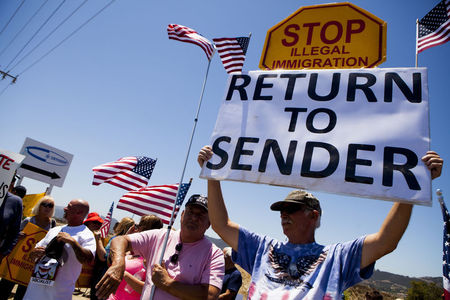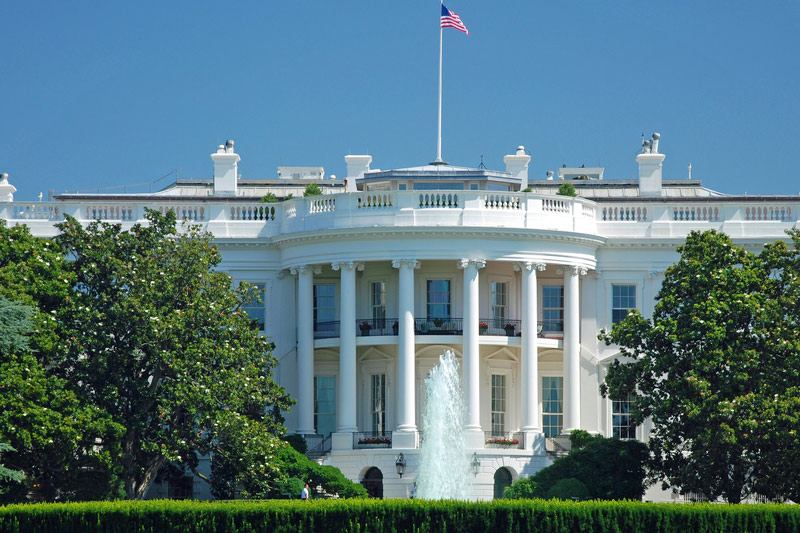By Steve Holland and Richard Cowan
WASHINGTON (Reuters) - The U.S. administration took steps on Tuesday to halt a cross-border surge of children from Central America, asking Congress for $3.7 billion in emergency spending and putting in place plans to make the youngsters' deportation hearings a priority.
It was President Barack Obama's most substantive response to date as he struggles to gain control of a humanitarian crisis along the Texas border with Mexico and to fend off Republican Party critics demanding a tougher response.
One of those critics, Texas Governor Rick Perry, was due to meet Obama in Dallas on Wednesday. On Sunday Perry accused the administration of moving too slowly. He has called for National Guard troops to be sent to the border.
The U.S. government projects there could be around 150,000 children next year under the age of 18 from Honduras, El Salvador and Guatemala fleeing rampant poverty and domestic- and gang-related violence. More than 52,000 unaccompanied minors from the three countries have been caught trying to sneak over the border since October, double the number from the same period the year before.
The $3.7 billion request is higher than initial estimates of $2 billion. White House officials said they never embraced the lower figure, and knew it would be higher than that.
The White House said the largest portion of the requested funding, $1.8 billion, would pay to care for the children while in U.S. custody. Other funds would go to beefing up border enforcement, hiring more immigration judges and paying for programs to discourage deported children from trying again to slip into the United States illegally.
Separately, a Justice Department official told Reuters the United States plans to give priority to child migrants over adults in deportation hearings. The new policy, to be announced on Wednesday, means immigration courts will now hear first from newly arrived children, while adult immigrants not in detention, including those who are seeking asylum, will have to wait longer, the official said.
Central America, a key transshipment point for drug smuggling between South America and the United States, has a long history of gang violence and the problem has mushroomed in recent years owing to turf wars fought by ruthless Mexican drug cartels. Honduras has the world's highest murder rate, according to a report released by the United Nations in April.
OBAMA PLEA
The administration's actions will test Obama's ability to negotiate effectively with Republican lawmakers who have blocked much of his agenda ahead of a November election when they hope to capture the U.S. Senate from Obama's Democratic Party.
In a letter to House of Representatives Speaker John Boehner, Obama urged Congress to act swiftly on his plea for the money. Republicans often cite the need for added law enforcement efforts. But some of the same Republicans urging fast action began raising concerns about more federal spending and that could complicate fast passage in Congress.
Senator Richard Shelby, the senior Republican on the Senate Appropriations Committee, told reporters that any emergency funding requested by the administration should be offset with spending cuts to other government programs.
Shelby's recommendation was that the spending cuts be achieved by making savings to the "Obamacare" healthcare law that Republicans have been trying to repeal. This was likely to be a red flag to Obama and Democrats in Congress.
A Boehner spokesman would not comment on whether he would insist on the need to offset any new border security money.

In vowing to swiftly return to their home countries the tens of thousands of children under 18 who have flocked to the United States in recent months, Obama risks the wrath of Hispanic-American allies who look to him to act on his own to loosen, not strengthen, immigration rules.
Seeking to make the request more politically acceptable to lawmakers, the White House added $615 million in urgently needed money to fight summer wildfires raging in western states. This brought the total funding request to $4.315 billion.
(Additional reporting by Mark Felsenthal and Jeff Mason)
